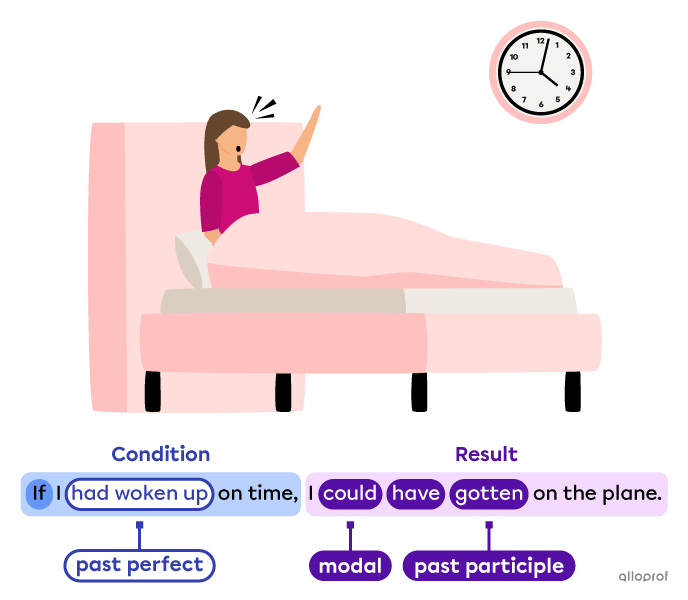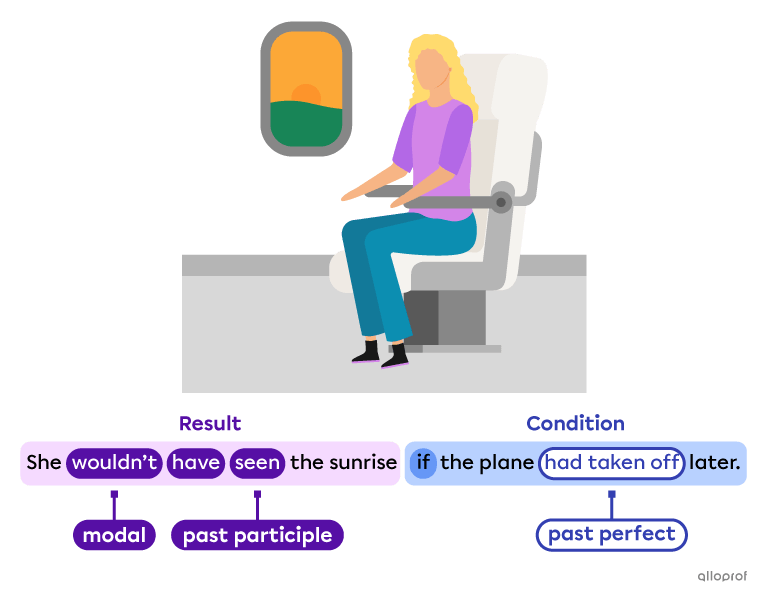Third conditional sentences are used to express how the present would be if something different had happened in the past.
Third conditional sentences are commonly used to:
-
imagine something that could have happened in the past
-
express regrets about the past
The third conditional is also called the unreal conditional because both the condition and the result are hypothetical/imaginary.
The usual structure of third conditional sentences is:

Conditional sentences contain two clauses:
-
Conditional clause (commonly called the if-clause)
-
the condition/situation
-
dependent clause—it needs the hypothetical result to form a complete sentence
-
contains a conditional clause marker—subordinating conjunction such as the words “if,” “when,” “as,” etc.
-
Main clause
-
the result
-
independent clause—makes sense on its own

